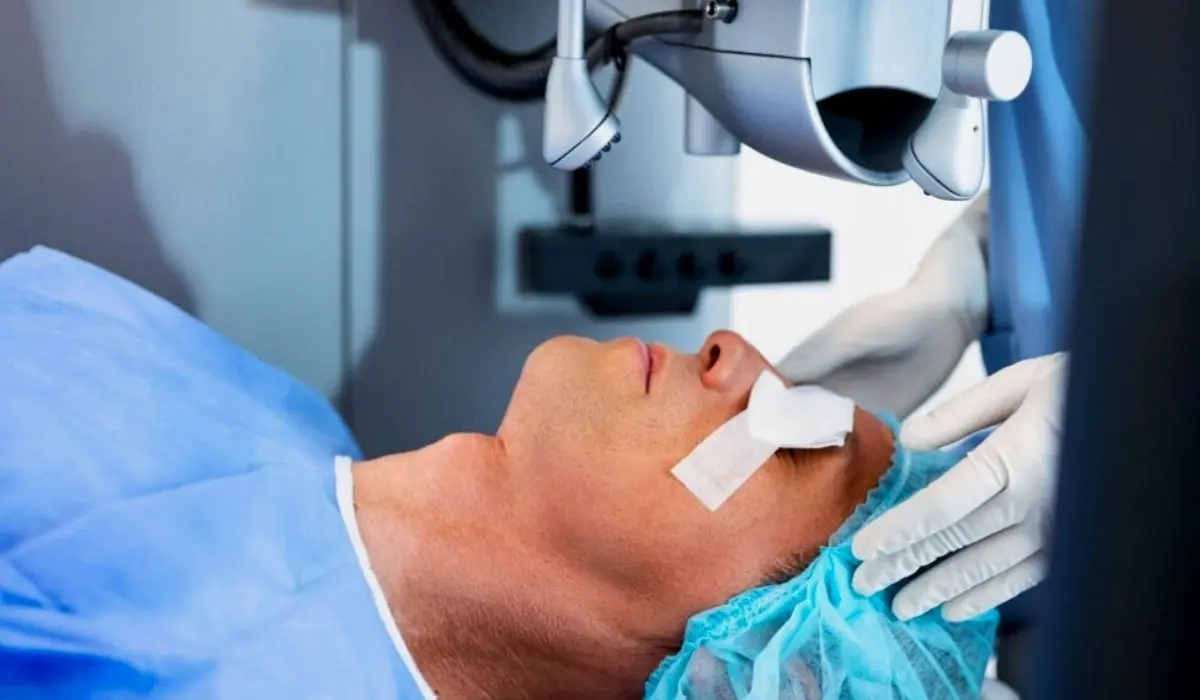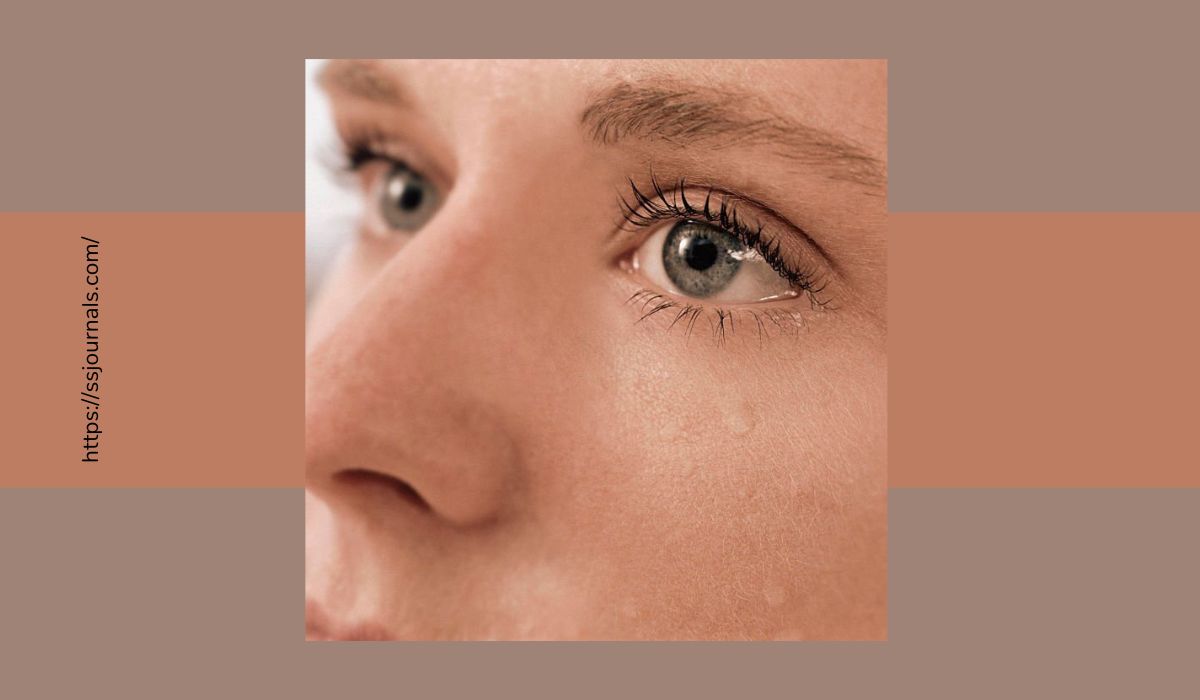Cataract surgery may result in watery eyes. This is simply the eye adapting to the new lens and the healing process. It’s usually nothing to be alarmed about, as it only lasts a few days.
Tear production increases as the eyes adjust. It’s a normal response, which resolves on its own.
Other causes of watery eyes could be due to dryness, or from medications used during surgery.
Understanding Cataract Surgery
To better understand cataract surgery and its common symptoms and side effects, dive into this section.
With a clear focus on providing you with the necessary information, we’ll explore the sub-sections: an explanation of cataract surgery and an overview of the common symptoms and side effects you may experience.
Explanation of Cataract Surgery
Cataract surgery offers a chance to restore vision by removing the clouded lens and replacing it with an artificial one.
The surgeon makes a small incision and uses ultrasound to break up the cataract. Afterward, they remove the fragments and insert the new lens.

For successful cataract surgery, several factors must be taken into account.
Preoperative assessment, surgical technique, and postoperative care all play a part.
The patient must have a thorough examination beforehand to ensure they are fit for surgery.
During the procedure, the surgeon must be delicate to prevent any complications. And after that, proper care is essential to prevent infection or inflammation.
To ensure the best results from cataract surgery, the patient should follow certain recommendations.
They should follow all preoperative instructions given and attend all postoperative appointments.
Prescribed medications such as antibiotics or steroids should be taken diligently.
Proper hygiene practices like washing hands before touching eyes should also be done.
Common Symptoms And Side Effects
Cataract surgery is a common procedure but can have some symptoms and side effects. Here are some you may experience:
◼ Blurry vision: It’s normal to have blurry vision right after the surgery. This should clear up in a few days as your eye heals.
◼ Dry eyes: Some patients may get dry eyes. Artificial tears or eye drops can help with this.
◼ Light sensitivity: Bright lights or glare can be uncomfortable. Sunglasses or tinted eyeglasses can help.
◼ Inflammation: This is common. Eye drops or medications can reduce inflammation and stop infection.
◼ Hazy vision: Swelling or clouding of the membrane behind the lens can cause this. YAG capsulotomy (a laser procedure) can help.
Everyone’s experience is different. To make sure things go smoothly, here are some tips:
◼ Follow the doctor’s instructions: Do what they say, including using any eye drops, avoiding strenuous activity, and going to follow-up appointments.
◼ Protect your eyes: Wear sunglasses/goggles to keep dust, wind, and bright sunlight away.
◼ Don’t rub your eyes: Rubbing your eyes can cause irritation and infection. Rinse with water or use eye drops instead.
◼ Be patient: It takes time for vision to stabilize. Allow yourself the necessary recovery period.
◼ Speak up: If you have severe pain, worsening vision, or any other concerning symptoms, speak to your doctor.
These suggestions will help your healing process and ensure a successful outcome from your surgery.
Each one serves a purpose to aid your eye health during recovery.
Watery Eyes After Cataract Surgery
To better understand watery eyes after cataract surgery, delve into the causes and duration of this issue.
Explore the sub-sections on the causes of watery eyes and the duration and frequency of this condition.
Investigate these sub-sections for a comprehensive understanding of watery eyes post-cataract surgery.
Causes Of Watery Eyes
Have watery eyes after cataract surgery? It may be due to:
◼ Blockage in the tear drainage system
◼ Increased tear production
◼ Dry eyes
◼ Corneal edema
◼ Improper healing of incisions
◼ An allergic reaction
◼ Pre-existing conditions, like blepharitis, can also cause excessive tearing.
Don’t wait to get help! The sooner you seek medical attention, the better the outcome. Take charge of your ocular health and say bye-bye to waterproof mascara!
Duration And Frequency Of Watery Eyes
The duration and frequency of watery eyes after cataract surgery can vary. It’s common to experience watery eyes in the early days or weeks.
Usually, the frequency decreases over time.
But, it could last for several months in some cases. Things like healing abilities and surgical techniques influence the duration and frequency.
Every patient’s experience can differ. Most patients are relieved within a month. However, a few may have episodes for longer.
Related:- How To Take Care Of Pink Eye? Risk Factors While Exposing!
Managing Watery Eyes
To effectively manage watery eyes after cataract surgery, explore home remedies and self-care techniques, as well as medical interventions and treatments.
Home Remedies and Self-Care Techniques
◼ Combat watery eyes with a cold compress or a washcloth.
◼ Lubricate the eyes with artificial tears or eye drops.
◼ Don’t rub them, as this can worsen the symptoms.
◼ Gently cleanse your eyelids with warm water and mild baby shampoo.
◼ Humidify your room to add moisture to the air.
◼ Steer clear of allergens or irritants that can trigger watery eyes.
Medical Interventions And Treatments
Medical interventions and treatments for watery eyes involve addressing the underlying causes. Let’s explore the options available.
A table of medical interventions and treatments for watery eyes:
| Treatment | Description |
| Artificial tears | Lubricating eye drops that provide relief from dryness and irritation. |
| Prescription eye drops | Small devices are placed in tear ducts to prevent excessive tear drainage. |
| Warm compress | Applying a warm compress over closed eyelids can help unclog tear ducts. |
| Tear duct probing | A minimally invasive procedure to open blocked tear ducts. |
| Punctal plugs | Small devices placed in tear ducts to prevent excessive tear drainage. |
| Surgical intervention | A surgical procedure to address structural abnormalities or blockages. |
Plus, laser therapy and endoscopic dacryocystorhinostomy may be recommended based on the individual’s condition.
It’s important to consult with an eye care professional who can guide you to the most suitable medical interventions and treatments for your specific concerns.
Avoid onion-chopping contests with friends, unless you love crying like a waterfall!
Related:- What Vitamin Is Best For Eye Health? Essential Vitamins For Eye Health
Prevention Tips
To prevent watery eyes after cataract surgery, do the following:
◼ Don’t rub your eyes too much
◼ Use eye drops as instructed by your surgeon
◼ Wear protective eyewear when in bright sunlight or dusty places
Hygiene is also key. Avoid anything that might cause irritation or infection. If you take preventive measures, your recovery should be smooth.
Conclusion
Symptoms include dryness, itching, burning, and oddly enough, watery eyes.
In rare cases, there’s insufficient tear production or poor quality – called Dry Eye Syndrome.
Everyone’s experience differs and depends on age, health, surgical technique, and pre-existing eye conditions.
But, by following the doctor’s advice and reporting any concerns, Sarah was able to heal and enjoy her improved vision without discomfort.

